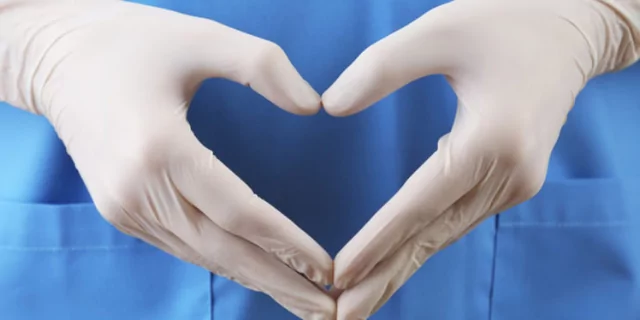 Many dental practices focus their treatments and procedures primarily on maintaining or correcting issues with oral health—but did you know treating problems in your mouth can actually help your overall physical health, too?
Many dental practices focus their treatments and procedures primarily on maintaining or correcting issues with oral health—but did you know treating problems in your mouth can actually help your overall physical health, too?
Your Jawbone’s Connected To. . .
Your teeth are connected to your jaw, which is connected to your skull, which is connected to a number of other systems in your body. When you truly understand the importance of oral health in relation to your overall health, you can see why we want to make sure we can offer treatments for anything having to do remotely with your smile, teeth, or jaw health.
If you, a friend, or a loved one is experiencing extreme cases of teeth grinding or pain in their jaw joint, you should know that seeing your dentist to get these problems resolved can do wonders for your overall well-being.
What Is Bruxism?
Bruxism is the technical term for excessive teeth grinding or clenching of the jaw. It can affect adults and children alike and can take place while sleeping or during the day. Bruxism is common, but unfortunately comes with several negative side effects.
Symptoms of Bruxism
Some people might be dealing with bruxism and not have any symptoms whatsoever. Others will experience symptoms such as:
- Headaches.
- Jaw Pain.
- Facial Pain.
- Tooth Pain
- Sensitive Teeth.
- Cracked Teeth.
- Worn Down Teeth.
It’s highly possible you’re dealing with bruxism if you’ve had any of these symptoms for an ongoing period of time. Any of these symptoms is painful and difficult to live with, and they can also lead to you developing a TMD or temporomandibular joint disorder.
What Is TMD?
Your TMJ, or temporomandibular joint, is the joint that connects your jaw to your skull. If you’re experiencing a TMJ disorder, or TMD, you might be experiencing pain and compromised movement of the jaw joint and the surrounding muscles.
Symptoms of TMJ Disorder
TMD can be caused by any number of issues, from physical trauma to habitually chewing on one side of the jaw. Some patients experience TMD as a result of high levels of anxiety and stress. Symptoms of TMD include:
- Jaw Pain.
- Difficulty Chewing.
- Clicking and Locking of the Jaw Joint.
- Pain in the Ear, Face, Mouth.
- Toothache.
- Jaw Crackling.
- Headache.
- Muscle Spasms.
TMD pain is not limited to just the head and face either! Some patients have reported aches in their shoulders, neck, and other areas of the body that ended up being related to the stress in their TMJ. If you have unexplained pain in your body in addition to stress in your jaw, the two could be related.
Treatment for Bruxism and TMD
Don’t live with pain and discomfort when there are treatment options available!
The good news about bruxism in children is that they often grow out of the issue without any needed help from corrective devices. Adults, on the other hand, usually require a little more help. However, because bruxism is often a big contributor to TMJ disorders, the two treatment methods often work hand in hand.
Wearable dental devices and self-care approaches can help alleviate some of the pain from both bruxism and TMD. Some of these methods include:
- Dental Mouthguard: These mouthpieces will be fitted directly to your unique smile so that they can prevent serious damage or injury to your teeth caused by grinding or clenching.
- Stress Management: Clenching or grinding your teeth is often a result of serious levels of stress. Self-help approaches to stress management such as verbally addressing problems or enjoying a fun activity can help.
- Relaxation Techniques: Deep breathing and other similar forms of meditation can help reduce levels of stress as well, resulting in less clenching or grinding. Implementing these practices before bed can be particularly useful.
- Biofeedback Therapy: Biofeedback therapy works to control blood pressure levels and other signs of stress in the body by pinpointing those stress signals and providing solutions.
- Cognitive Therapy: This is a talk-based therapy that works to modify negative thoughts and behaviors as well as your body’s physical responses to them. This can reduce clenching and improve your peace of mind.
Whether you’re suffering from bruxism, TMD, or both, you can get help and treatment for your pain.
Call Weinberg Dentistry to Learn More About TMJ and Bruxism
Get in touch with our team at Weinberg Dentistry today to learn more about how bruxism and TMJ disorders can affect your overall physical health. We can closely examine your bite and recommend some treatment options to help you. We look forward to doing what we can to alleviate your pain!

